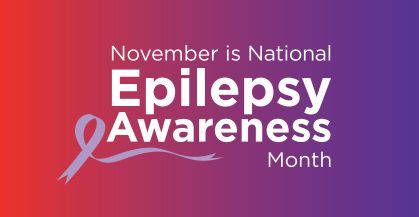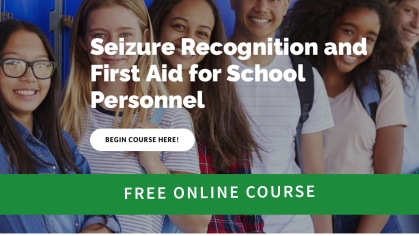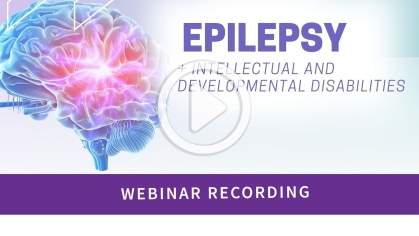
November is National Epilepsy Awareness Month
Did you know that epilepsy is the fourth most common neurological disorder, with at least 3.4 million people living with active epilepsy – including 470,000 children? 150,000 new cases of epilepsy are diagnosed every year and 1 in 26 people will develop epilepsy in their lifetime. Here are some great resources that can help you help yourself or someone else.
Epilepsy Resources
Epilepsy Services New Jersey is part of Family Resource Network, and provides a resource page offering a range of valuable information on seizure recognition and first aid training, assistance with medication costs, specific information on epilepsy within age groups and more.
The group works to ensure that people with seizures are able to participate in all life experiences, and strives to prevent, control and cure epilepsy through services, education, advocacy and research.
Seizure Recognition and Response Training
It is estimated that roughly 10% of people will experience a seizure at some point in their lifetime. For people who experience seizures, as well as their loved ones and caregivers, it is stressful to not know if or when one will occur, and if anyone will be around to provide assistance. And it can also be very distressing to witness a seizure and not understand what is happening or how to best support the person.
Within the intellectual and developmental disability community, seizures and epilepsy are even more common. For this reason, the Community Living Education Project, the Center for Public Health Workforce Development, and Epilepsy Alliance America (EAA) joined forces to create free, 45-minute, on-demand trainings on seizure recognition and first aid.
This training was specifically designed for school personnel of all types. It provides basic information about epilepsy, seizures, and how they can affect an individual. Most importantly, it highlights the importance of having a Seizure Action Plan for anyone diagnosed with epilepsy and describes what you should do if you witness someone having a seizure. It is also available in Spanish here.
This training is called the General Seizure Recognition and Response Training, and is ideal for family members of people with epilepsy, babysitters, co-workers, or anyone who would benefit from knowing about seizures, epilepsy and how to respond if someone has a seizure.
There's an App for That
If you or someone you know was recently diagnosed with epilepsy, another resource comes from the Epilepsy Foundation, which offers an Epilepsy Toolbox with information for people who are were recently diagnosed with epilepsy. The toolbox provides guidance regarding seizures that are hard to control, surgery and dietary therapies that may help to control seizures, and medications and tips to communicate effectively with medical professionals.
Keeping a seizure diary is a self-management tool the foundation offers as a way to help manage epilepsy.
The web-based tool helps you to track seizures, medication changes and triggers (including environmental, lifestyle or other health issues). You can access this app for your IOS and Android phones!
Another Helpful Resource
Another tool that some families have found to be valuable is a seizure monitor, known as an Emfit Movement Monitor, which is used as a nighttime monitor that responds with an alarm after repetitive movement is detected. It is sold in the United States through the Danny Did Foundation (DDF).
DDF advances awareness of epilepsy and Sudden Unexpected Death in Epilepsy (SUDEP). This monitor was developed by parents, and according to one local parent, "This has been a game-changer for us."
While no device has been proven to prevent epilepsy-related mortality (including SUDEP), the foundation is devoted to seeking out seizure detection and seizure prediction devices - as well as other technologies - that are designed to enable intervention by a caregiver.
As always, families should thoroughly research products to explore what may be most helpful; note that insurance does NOT cover this product.

